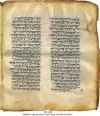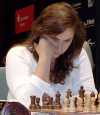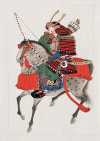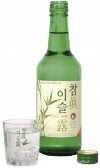 The 17th of Tammuz (Shivah Asar b’Tammuz) marks the day on which the walls of Jerusalem were breached by the Babylonians under Nebuchadnezzar. The three-week period between this day and the ninth of Av is known in Hebrew as the period Ben ha-Metsarim. It is a time of mourning for the Jewish people. Restrictions include not shaving or cutting one’s hair, not wearing new clothes, nor eating fruit for the first time in season. On each of the three Sabbaths during the Three Weeks, a special prophetic passage of the Old Testament, known as a haftarah, is read. Discuss
The 17th of Tammuz (Shivah Asar b’Tammuz) marks the day on which the walls of Jerusalem were breached by the Babylonians under Nebuchadnezzar. The three-week period between this day and the ninth of Av is known in Hebrew as the period Ben ha-Metsarim. It is a time of mourning for the Jewish people. Restrictions include not shaving or cutting one’s hair, not wearing new clothes, nor eating fruit for the first time in season. On each of the three Sabbaths during the Three Weeks, a special prophetic passage of the Old Testament, known as a haftarah, is read. Discuss
Source: The Free Dictionary
 Polgár is a Hungarian chess grandmaster and by far the strongest female chess player in history. A prodigy from an early age, she won many youth tournaments competing against boys. In 1991, at the age of 15, Polgár became the youngest grandmaster in history at the time, earning the distinction faster than Bobby Fischer and Garry Kasparov. She later became the first woman to be ranked in the top ten in the world, ranking as high as eighth. What world champions has Polgár defeated?
Polgár is a Hungarian chess grandmaster and by far the strongest female chess player in history. A prodigy from an early age, she won many youth tournaments competing against boys. In 1991, at the age of 15, Polgár became the youngest grandmaster in history at the time, earning the distinction faster than Bobby Fischer and Garry Kasparov. She later became the first woman to be ranked in the top ten in the world, ranking as high as eighth. What world champions has Polgár defeated?  In antiquity, Phrygia was a kingdom in the west-central part of the Anatolia, the site of modern Turkey. The Phrygian people settled in the area around 1200 BCE and established a kingdom in the 8th century BCE before being conquered and becoming part of the Persian, Greek, and Roman empires. Phrygia developed an advanced Bronze Age culture and the earliest traditions of Greek music were derived from the area. Who was the mythic Phrygian king who was given the “golden touch”?
In antiquity, Phrygia was a kingdom in the west-central part of the Anatolia, the site of modern Turkey. The Phrygian people settled in the area around 1200 BCE and established a kingdom in the 8th century BCE before being conquered and becoming part of the Persian, Greek, and Roman empires. Phrygia developed an advanced Bronze Age culture and the earliest traditions of Greek music were derived from the area. Who was the mythic Phrygian king who was given the “golden touch”?  The Battle of Falkirk was a major battle in the First War of Scottish Independence. It was fought between the leader of the Scots, William Wallace, and King Edward I of England, also known as the Hammer of the Scots. In 1298, Edward I invaded Scotland and defeated a smaller force led by Wallace at Falkirk. Edward’s longbowmen and cavalry decimated Wallace’s spearmen, forcing him to retreat. What did Wallace do shortly after losing the battle?
The Battle of Falkirk was a major battle in the First War of Scottish Independence. It was fought between the leader of the Scots, William Wallace, and King Edward I of England, also known as the Hammer of the Scots. In 1298, Edward I invaded Scotland and defeated a smaller force led by Wallace at Falkirk. Edward’s longbowmen and cavalry decimated Wallace’s spearmen, forcing him to retreat. What did Wallace do shortly after losing the battle?  The Wild Horse Festival, or Soma-Nomaoi, takes place annually in Soma City and Minami-Soma City in
The Wild Horse Festival, or Soma-Nomaoi, takes place annually in Soma City and Minami-Soma City in  Lazarus was an American Jewish poet. She became an impassioned spokeswoman for Judaism after the Russian pogroms of the 1880s, writing many essays and a book of poems, Songs of a Semite, which contains her best work. Her writings caught the attention of Ralph Waldo Emerson, with whom she shared a lifetime correspondence. She also worked for the relief of new immigrants to the US, and the famous closing lines of her sonnet “The New Colossus” were engraved on what monument?
Lazarus was an American Jewish poet. She became an impassioned spokeswoman for Judaism after the Russian pogroms of the 1880s, writing many essays and a book of poems, Songs of a Semite, which contains her best work. Her writings caught the attention of Ralph Waldo Emerson, with whom she shared a lifetime correspondence. She also worked for the relief of new immigrants to the US, and the famous closing lines of her sonnet “The New Colossus” were engraved on what monument?  In Korea, the tradition of brewing alcoholic beverages, known as ju, is a long and proud one. These beverages are generally made from rice, a major Korean crop. The many varieties of ju include liquors and fruit, flower, and medicinal wines. One variety, called ihwaju, or “pear blossom wine,” is brewed with rice malt fermented during the pear blossom season, a process that often produces a liquid so thick that it must be consumed in what way?
In Korea, the tradition of brewing alcoholic beverages, known as ju, is a long and proud one. These beverages are generally made from rice, a major Korean crop. The many varieties of ju include liquors and fruit, flower, and medicinal wines. One variety, called ihwaju, or “pear blossom wine,” is brewed with rice malt fermented during the pear blossom season, a process that often produces a liquid so thick that it must be consumed in what way?